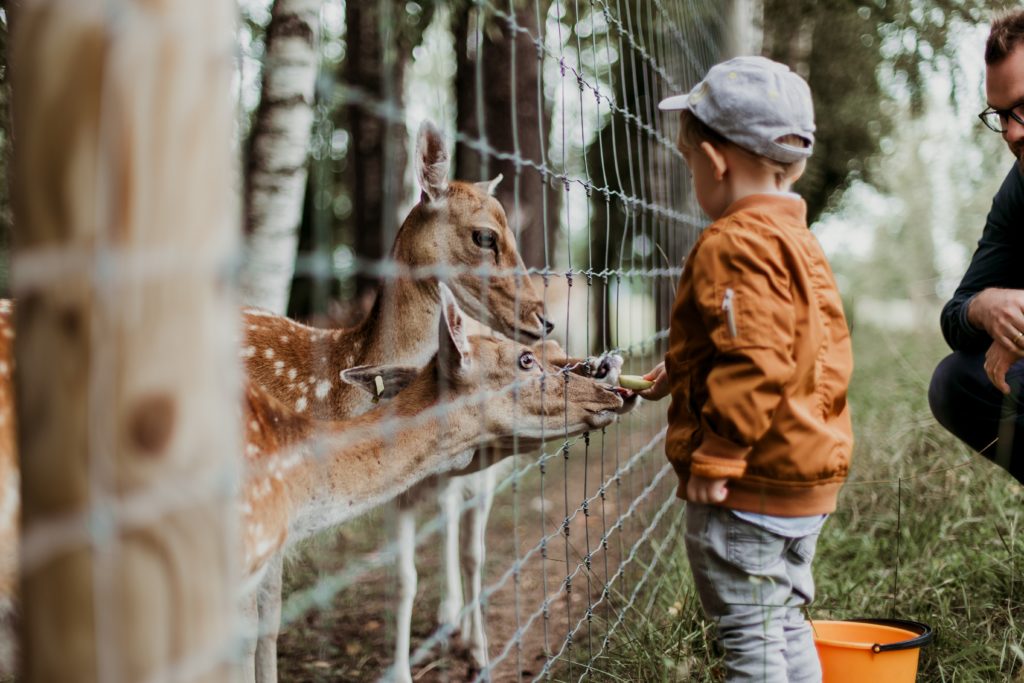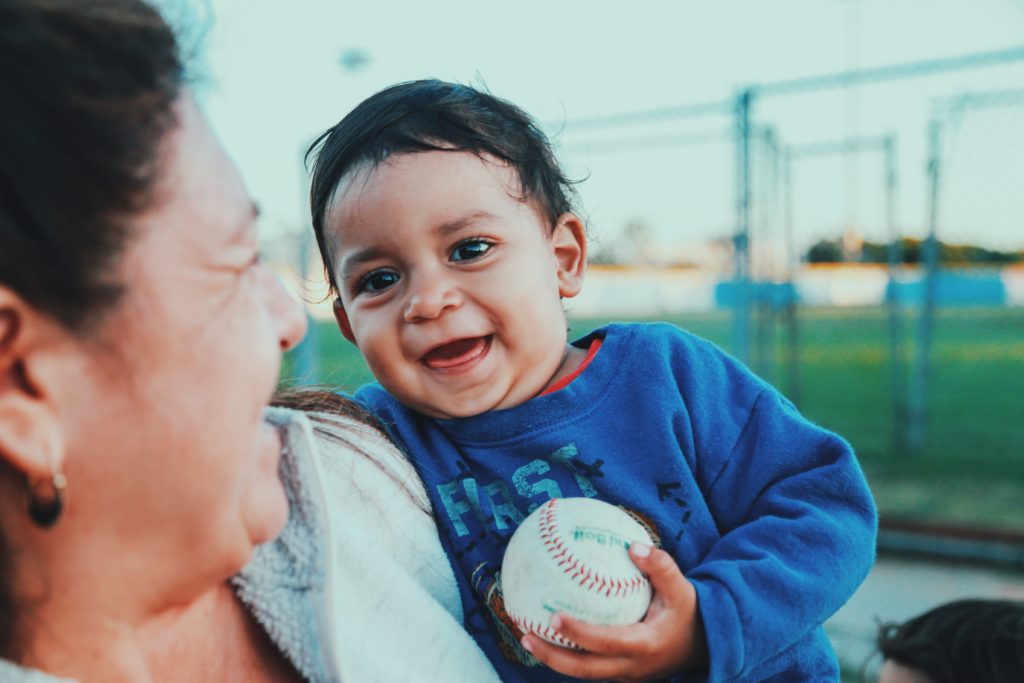![]()
ENFJs are naturally warm, empathetic people who make enthusiastic parents who are eager to always do their best for their children. Any child with an ENFJ parent will enjoy the wealth of support and understanding that this type offers, along with the freedom to become whoever and whatever they want to be.
General Overview
ENFJs are natural parents and usually take great pleasure in this role. As with all things, they lead with extraverted feeling as parents, and this gives them skills that can help them meet their children’s needs and bond with them on an incredibly deep level. Because of their emotional intelligence, some ENFJs run the risk of becoming manipulative with their children, using their understanding of emotions to control and direct their children’s behavior and even their lives. But as long as the ENFJ is at a reasonable level of health, they will usually refrain from doing this.

“ENFJs want their children to understand the long term consequences of their actions and decisions, and to make moral choices. To help them with this, they’re often big on imparting life lessons to their children, whether through their words, their actions or their choices.”
Photo by Daiga Ellaby on Unsplash
ENFJs want their children to understand the long term consequences of their actions and decisions, and to make moral choices. To help them with this, they’re often big on imparting life lessons to their children, whether through their words, their actions or their choices. ENFJs consider this to be the most important duty they have to their children, and will tirelessly work towards this result.
Household Organization and Discipline
ENFJs usually aren’t natural disciplinarians. They’re far more likely to try to instill strong values in their children with conversation and by example than to punish them when they do something wrong. ENFJs want their children to live with strong moral values, and they always take care to ensure their children understand the basis of those values. To ENFJs, obeying blindly is not a virtue, or something they would ever encourage. To this end, an ENFJs discipline is likely to be placed within a larger moral context and meant to impart deeper wisdom and understanding to their children.
The ENFJ and Emotional Support
ENFJs are very good at giving emotional support. Their dominant function is extraverted feeling, which automatically notices what other people are feeling to an astonishing degree and accuracy. This means ENFJs are usually really good at understanding what different people need to feel supported and secure, and the ENFJ will naturally dedicate themselves to proving it. The ENFJs emotional intelligence is what makes them such natural parents, and any child would benefit from this kind of understanding and attentive care and support. They can also learn a lot from the ENFJs empathy and compassion in dealing with other people.
The ENFJs Engagement Level
ENFJs will usually be very engaged with their children. This personality type thrives on taking care of others, and any children they have will reap the benefits of this type of care. To this end, ENFJs will be a constant presence in their children’s lives, providing gentle guidance and emotional support. They’ll also understand the importance of witnessing the big moments in their children’s lives, and will be present for special events and give practical assistance for whatever their children want to do. This will include driving them to sporting events and school activities as well as ensuring they take part in healthy extracurricular and have a supportive group of peers.
The ENFJ and SJ Children
ENFJs will probably have a little trouble relating to their SJ children. ENFJs use introverted intuition as their auxiliary function, which gives them a strong connection to the future and to all the possibilities of life. SJ children use introverted sensing as either their primary or auxiliary function. This means that they’re often strongly connected to the past and prefer tried and true procedures and systems rather than new, speculative ones. ENFJs will probably struggle to understand this viewpoint, but that won’t stop them from giving their child the emotional support they need. Because ENFJs are so emotionally intelligent, they have an innate understanding of what other people need and can even alter their own approach to others based on those needs. This tendency will serve them well in interacting with their SJ children.

“Because ENFJs are so emotionally intelligent, they have an innate understanding of what other people need and can even alter their own approach to others based on those needs. This tendency will serve them well in interacting with their SJ children.”
Photo by esse ramirez on Unsplash
The ENFJ and SP Children
There will always be a bit of a disconnect between an intuitive and a sensor type. People who use introverted or extraverted sensing are very based in the real world, in the moment, and don’t usually trust or enjoy making intuitive leaps or noticing patterns in the world. This powerful difference in the way SP children learn and interact with the world compared to their ENFJ parent will make communication and understanding difficult. In the case of SP children with an ENFJ, this difference can be less important because of their shared desire to go out and explore the world. They will do this differently, and return with different conclusions, but the shared desired to explore and experience can vastly enhance this parent child bond.
The ENFJ and NF Children
ENFJs will probably have a special bond with their NF children. This is not to say that this type has favorites, but the shared intuitive and emotion based view on the world usually makes these parent-child relationships extremely strong. The ENFJ will understand exactly what their child needs to grow and develop, and their brand of supportive and encouraging parenting is exactly what NF children need to thrive.
The ENFJ and NT Children
NT children will sometimes find their ENFJ parent a little overwhelming. Because NTs are extremely rational, and prefer facts over feelings in all situations, the effusive and emotional nature of their ENFJ parent can feel a little smothering and over the top. ENFJ parents will also find their NT children difficult to understand sometimes. This type is so reliant on emotions and emotional expression that they may find their NT children cold in comparison. But with the ENFJs emotional intelligence, they will usually find a way to connect with their NT children, probably based on their shared intuitive learning style. And NT children will benefit greatly from the emotional understanding of the ENFJ, and perhaps improve their own emotional intelligence as well.
Final Thoughts
ENFJs are usually natural parents, warm and supportive and yet emotionally intelligent enough to encourage their children to develop as independent adults. Because of these traits, ENFJs can create the ideal environment for a child to grow up in, and this type usually takes great pleasure in doing so.
References
- Storm Susan. “Understanding ENFJ Feeling“. Mar 17, 2017. (Retrieved Feb 2018).
- “Sensing or iNtuition Preference“. (Retrieved Feb 2018).
- “ENFJ – The Mentor“.